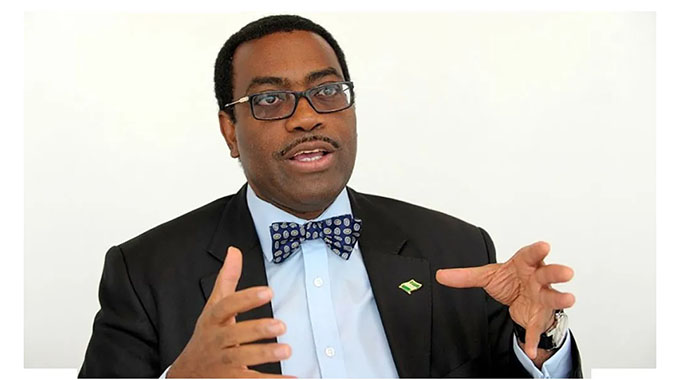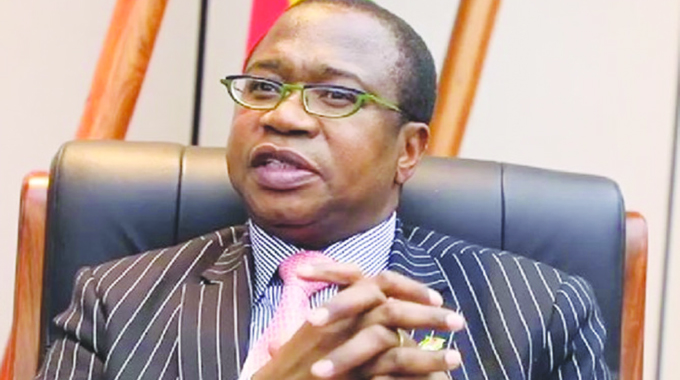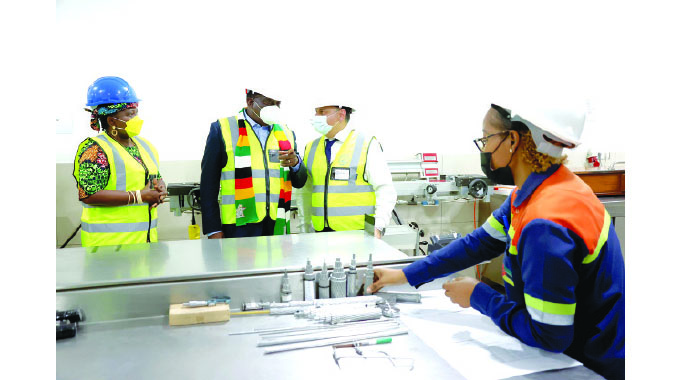AfDB reaffirms support for Zim

Nelson Gahadza-Senior Business Reporter
The African Development Bank (AFDB) has reaffirmed its strong support for Zimbabwe on its debt and arrears clearance strategy, which will be bolstered by the scheduled visit from the bank’s president Dr Akinwumi Adesina in the next few months.
Finance and Economic Development Minister Mthuli Ncube said this yesterday after meeting the AFDB delegation, which is in the country led by acting vice president, Regional Development, Integration and Business Delivery Yacine Fal.
Minister Ncube said a wide range of issues were discussed during the meeting, including how the global economy is impacting Zimbabwe and how the country has responded to that.

Finance and Economic Development Minister Professor Mthuli Ncube
“We also discussed how the bank can work more closely with Zimbabwe in giving us policy advice or support in extending resources particularly to the private sector.
“The bank has also been supporting our social programmes and we are pleased that the bank reaffirmed its strong support for Zimbabwe through all its organs and we are looking forward to receiving president of the bank in the next couple of months here in Zimbabwe who has agreed to work with us in terms of arrears clearance strategy to various creditors including AFDB,” he said.
According to AFDB, the visit underscores the African Development Bank’s firm commitment to the southern African region’s growth prospects and to deepen engagement with SADC at the strategic and technical levels.
The delegation which has been in Zimbabwe from April 5-8 2022, is scheduled to meet President Mnangagwa and other members of Government with focus on the bank’s support to Zimbabwe’s arrears clearance programme.
The team will also meet executives of the African Capacity Building Foundation, as well as private sector and various non-regional partners.
In Zimbabwe, the bank currently supports 15 initiatives valued at $176 million and these include the rehabilitation of infrastructure in the energy, water and sanitation sectors, financed through the ZimFund.
AFDB’s vice president Yacine Fal said the bank was happy with continued engagement with the authorities, the Government and the people of Zimbabwe.
“We have a consistent and long standing corporation with Zimbabwe and in this context; the bank is extending a high level delegation to continue this dialogue, including commending the Government on the important efforts on the economic front that have been achieved already and creating the ground for debt arrears clearance scheme that will necessarily be successful and already strong,” she said.
Zimbabwe’s consolidated debt is now estimated at US$19,03 billion as at the conclusion of the Article IV Consultation with Zimbabwe on March 21, 2022. The debt owed to AfDB is estimated at around US$1,3 billion.
The US$19,03 billion consolidated public sector debt represents 68,1 percent of GDP, a threshold above the acceptable ratio, with public and publicly guaranteed external debt standing at US$17,59 billion of which arrears are at US$13,1 billion.
Ms Fal said the bank appreciated Zimbabwe’s efforts and the delegation was here to convey the appreciation for the positive commitments of Dr Adesina to act as a champion of supporting the Zimbabwe’s efforts with regards to arrears clearance and other efforts to restore economic resilience and build the base for economic growth and betterment of the welfare of the Zimbabwean people.
Before coming into Zimbabwe, the AFDB delegation was in Botswana from April 4-5, where the team met with several government and industry leaders.
The bank has provided $137 million in loans to support Botswana’s economic recovery from the pandemic.
The delegation will also hold talks with the Southern African Development Community’s deputy executive secretary for regional integration, Dr Thembinkosi Mhlongo.
They will discuss areas of strategic interest to the SADC region, including the implementation of the Programme for Infrastructure Development in Africa, and the operationalisation of the African Continental Free Trade Area.
SADC’s main objectives are to achieve development, security and economic growth, to alleviate poverty and support the socially disadvantaged of the southern Africa region through regional integration.











Comments